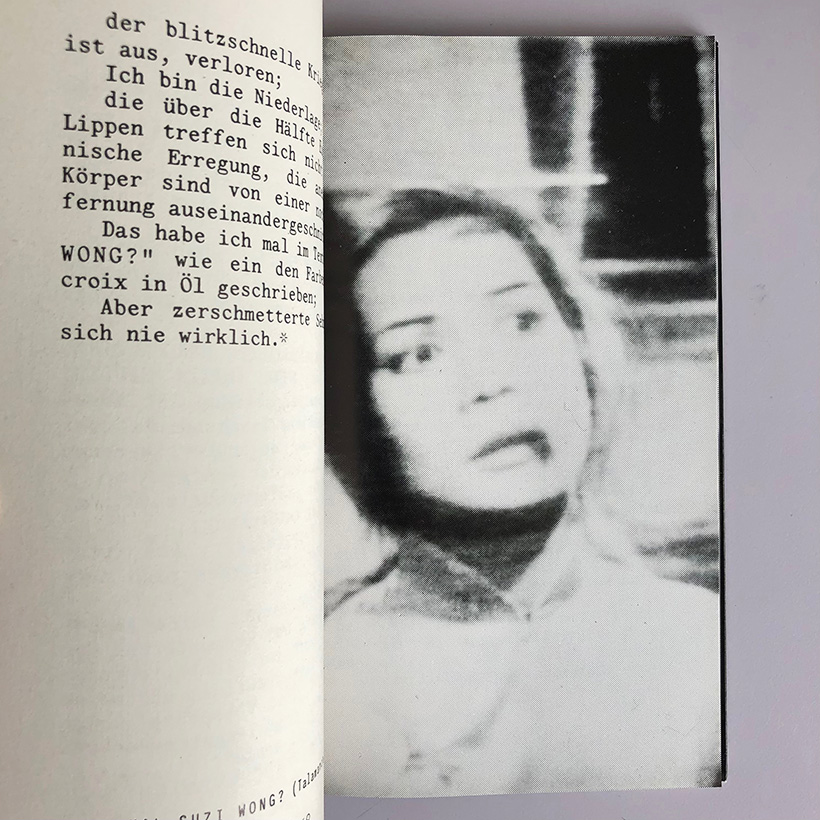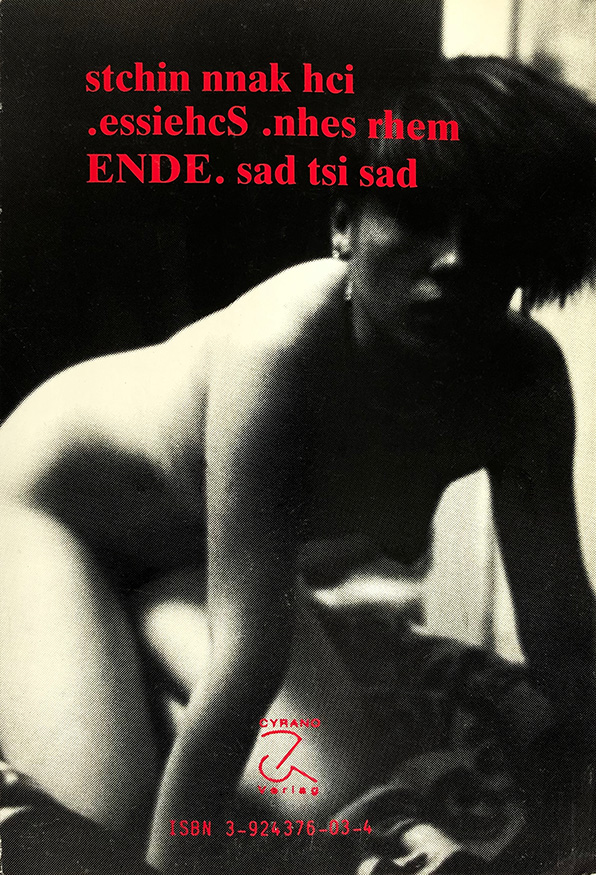Author: Kiev Stingl
Publisher: Cyrano Verlag, Berlin
Year: 1984
Size: 210 x 143 x 7 mm
Pages: 102, offset printed and perfect bound
Language: German
Photography: Kiev Stingl, Angelika Oehms a.o.
Design: Cyrano / Stingl / Keule
Condition: excellent, minor damage to the edges of the cover
Postage & packing not included
 Kiev Stingl was born in 1943 in Aussig a.d. Elbe in Sudetenland, from which he and his mother had to flee after the end of World War II. After having first having found refuge in Mannheim he was relocated to Hamburg in 1949, where he attended secondary school and unsuccessfully studied Politicology and Ethnology. In 1985 he moved from Hamburg to Berlin. Since 1975 he has been active as a composer, lyricist, singer, actor and performer and has authored four acclaimed LPs (Teuflisch, Hart wie Mozart, Ich wünsch den Deutschen alles Gute and Grausam das Gold und jubelnd die Pest), four books (Flacker in der Pfote, Die besoffene Schlägerei, Kainer Maria Cowboy and Sink Skin) and many other unpublished and unreleased works. His provocative behaviour and existentialist stance paired with outstanding qualities as a lyricist and author make Kiev Stingl a unique and uncompromising voice of the German post-war generation.
Kiev Stingl was born in 1943 in Aussig a.d. Elbe in Sudetenland, from which he and his mother had to flee after the end of World War II. After having first having found refuge in Mannheim he was relocated to Hamburg in 1949, where he attended secondary school and unsuccessfully studied Politicology and Ethnology. In 1985 he moved from Hamburg to Berlin. Since 1975 he has been active as a composer, lyricist, singer, actor and performer and has authored four acclaimed LPs (Teuflisch, Hart wie Mozart, Ich wünsch den Deutschen alles Gute and Grausam das Gold und jubelnd die Pest), four books (Flacker in der Pfote, Die besoffene Schlägerei, Kainer Maria Cowboy and Sink Skin) and many other unpublished and unreleased works. His provocative behaviour and existentialist stance paired with outstanding qualities as a lyricist and author make Kiev Stingl a unique and uncompromising voice of the German post-war generation.
Kiev Stingl’s Die besoffene Schlägerei was published by Cyrano Verlag, Berlin in 1984. A number of fine copies of this sought-after edition are now available from Moloko Plus via Sea Urchin. The book, at first sight a loose collection of texts, essays, prose poems and photos, is subtitled La Bataille ivre in reference to Le Bateau ivre by Arthur Rimbaud. Stingl is not the first one to be inspired by this poem: it is also known to have had a major influence on the Beat Generation. But where the works of the Americans breathe sexual liberation, adventure, intoxication, expatriation and sometimes make use of the cut-up method to expose the inner mechanisms of language, Kiev Stingl takes Rimbaud’s poem for the starting point of an intoxicated trip into a more universal existential exile, in which sex is not liberating but a violent cry under empty skies and language and linearity are not so much cut up as smashed into shards. Stingl’s original and evocative language in his texts, notes and essays are combined with 30 photographs which form a loose photonovel, the captions of which make up the final chapter of this extraordinary book.


